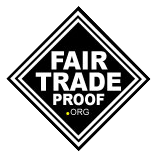
Cafe Organico Marcala (COMSA) was founded in December of 2001 with a vision of creating new and alternative development opportunities for small-scale coffee farmers in the region of Marcala, Honduras. The organization originally brought together 69 small-scale farmers of Lenca origin who were interested in selling their coffee collectively under the umbrella of a rural credit union.
At that time, the predominant production system in the region used conventional (chemical) practices and sold to the local coyotes, often at prices that did not even cover the farmers’ production costs. One of the primary founding objectives of COMSA was to seek out and promote new ways of thinking – both in production, moving from conventional to organic production; and in markets, moving from commercial to specialty buyers.
In the beginning the challenges were enormous, as transitioning from conventional to organic practices can cause dramatic drops in production yields. Many members became discouraged and dropped out of the organization. In response, the COMSA Board of Directors and technical team looked for new methods of intensive organics to support their transition and established a strategic alliance with the Corporacion Educativa para el Desarrollo Costarricense – CEDECO. With CEDECO’s support, staff and members of COMSA learned new and innovative practices to transform their lands into integrated organic farms – promoting soil and water conservation, and the preservation of local plant and wildlife. Meanwhile, members began to see improvements in coffee yields, better family relationships and rapid growth in membership for COMSA.
With their initial successes, members became more and more open to experimentation with innovative organic practices. Since COMSA's inception, it has developed its own approach to organic agriculture, adopting the five “Ms” of organic agriculture over time: in 2001 - use of organic Matter; 2006 – application of Micro-organisms in compost; 2010 - exploring the use of Minerals; 2012 – production of fermented live Molecules; 2013 - strengthening the grey Matter (brainpower) of their technical team, members, and strong educational program with their youth and women’s groups. Today, their lead farmers continue to demonstrate effective, regenerative organic practices that are both improving productivity and protecting their plants from common diseases.
In 2016, COMSA launched the Diplomado Organico, a week-long intensive training program that not only teaches innovative organic farming techniques, but also helps broaden perspectives for small-scale farmers on the relationship between their work, the ecosystem and the health of communities on both sides of the supply chain.
Cooperative Coffees began working with COMSA in 2014, importing their members' high quality washed and honey process green coffees, presenting the unique regional characteristics of Marcala: medium body and pronounced acidity, bitter chocolate flavours, and nuances of floral, lemongrass, peach and wild berries. We were delighted to participate in the Diplomado Organico course in 2016 and are pleased to offer continued support by sponsoring our producer partners in Latin America to attend this program.
Cafe Organico Marcala S.A.
- FLO ID#: 4241
- Organic Cert
Profile
- Total Bags Purchased: 45058
- Partner Since: 2014
- Founded: 2001
- Total Members: 1644
- Total Hectares: 6319.28
- Organic Members: 1030
- Female Members: 445
- Avg Farm Size: 3.84 ha
- Organic Hectares: 4179.05
- Full time staff: 34
- Fulltime Agronomists: 9
- Harvest: Dec-Apr
- Elevation: 1200-1750 m
Varietals Grown:
- 22% Lempira
- 21% Ihcaf� 90
- 14% Parainema
- 13% Catuai
- 10% Catimor
- 7% Icat�
- 5% Anacaf�14
- 3% Geisha / Gesha
- 2% Bourbon
- 1% Pacamara
- 0.5% Pache
- 0.5% Pacas
- 0.5% Villa Sarch�
- 0.5% Maragogipe
Social Premium Investment: 2023 Crop Year
Fair Trade Certification guarantees 20 cents/lb of the price paid a producer organization is set aside as a social premium. How this money is invested is a decision taken collectively by the general assembly of members at the end of each harvest. Below is a break down of how producers in this organization chose to spend their fair trade premium.
| 35% |
Additional Income
Additional premium paid to farmers to incentivize productivity and quality.
|
| 29% |
Operations
Paying for income tax levied on COMSA exports Paying for administrative costs.
|
| 25% |
Education
FUNDACOMSA
|
| 5% |
Improve Yields
Technical assistance
|
| 4% |
Certification Costs
Paying for certification fees.
|
| 1% |
Community Development
Contribution for COMSA workers and collaborators
|
| 1% |
Gender Equity
Support for gender committee to incentivize women's participation and leadeship.
|
Recent Projects We Supported:
| Date | Project | Status | Report |
| 6/24/24 | Social and Environmental Regeneration through Coffee | Approved |
